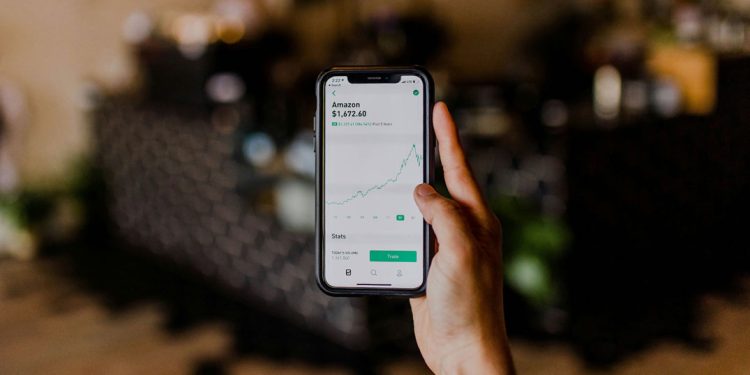UK Taxation for Traders Explained

Traders in the UK have the luxury of participating in several profitable markets. However, it is easy to ignore the dreaded prospect of a tax bill. Avoiding taxes can cause many problems that can make one’s life difficult. Ultimately, every trader is legally obliged to pay tax for their investments. Let’s learn more about taxation for UK traders here.
The Prominence of Trading in the UK
The United Kingdom is a hub for the online trading of several markets or CFDs (contracts for difference) like shares, indices, commodities, and cryptocurrencies. A recent study by Finder on CFD trading statistics for the region found that stocks dominated 43.21% of trading for Brits.
The London Stock Exchange (the primary stock exchange in the region) was formed in 1801, making it one of the oldest globally. A different analysis by Finder indicates that nearly a quarter of Brits had invested in equities as of 2024.
The most prominent assets following stocks in the initial study are funds (ETFs, index tracker funds) at 23.51% and cryptocurrencies at 22.96%. Surprisingly, trading forex comes in third with 13.59% of the share. London is ranked second in the Global Financial Centres Index for 2023. A ranking of this magnitude highlights the city’s dominance as a global financial centre.
Other popular markets in Finder’s report include bonds, ethical investments, options, and futures.
Spread betting is a unique trading type available only in the United Kingdom and Ireland. It’s a points-based, wager-like style to trade most of the assets discussed previously. One massive advantage of spread betting is that it’s free of stamp duty and tax because the UK government views it as gambling, which remains taxless.
Types of Trading in the UK
The types of trading in the United Kingdom align with those in other countries. Derivatives and investing are the two main strands.
Derivatives
In derivatives, participants trade a market without any physical ownership. The prices of derivatives come from the assets mentioned earlier, like stocks, forex, cryptocurrencies, and indices. Derivatives suit those with short-term horizons who prefer to speculate on many markets at once instead of holding or owning them.
Users can trade derivatives for more hours on platforms or brokers without links to a central exchange (‘over the counter’). As a result, traders often receive customised trading conditions. However, one may trade markets like options and futures on exchanges instead of brokers.
Another benefit of derivatives is that they offer leverage, meaning one can increase one’s potential gains massively. Yet derivatives can also magnify one’s losses, hence why they are speculative or risky.
Investing
The next type of trading is investing, with stocks being the most preferred option. Investing involves a buy-and-hold, hands-off approach, where the investor holds an asset for at least three years.
In the case of stocks, this would mean buying a stock from the London Stock Exchange. Unlike trading a stock derivative, where one doesn’t own the stock, this route gives the holder ownership of actual shares.
ETFs (exchange-traded funds) are also popular among British investors through issuers or asset management companies like Vanguard, BlackRock, and Amundi. They provide the most diversity since a fund is generally simultaneously based on many different instruments.
Many consider exchange-based trading safer (since it’s appropriately regulated) and transparent. Despite this, it often requires more significant investment capital, which excludes the average person in the United Kingdom.
Taxation Around Trading in the UK
Like many advanced nations, the UK government taxes most types of trading or investing. Below are the three primary ways Brits may be taxed.
Capital Gains
Capital gains tax (CGT) is the tax you pay on the profits you’ve made selling an asset that has gained in value since its purchase. It applies to the already described assets and others like artwork and property.
Every UK citizen has an annual CGT allowance, currently £3,000 — so gains below this threshold are tax-free. For instance, if you were trading forex and profited £10,000 during the tax year, you would pay tax.
What is payable to HM Revenue & Customs (HMRC) depends on your tax bracket. Basic rate taxpayers are charged 10% of their profits for capital gains. Meanwhile, additional rate taxpayers are charged 20% of their earnings. These are the two brackets considered for capital gains tax.
Dividends
Another kind of tax is the dividend tax, which applies only to holders of exchange-traded stock. Dividends refer to a portion of a listed company’s profits paid to shareholders who own their shares.
The current annual allowance is £500. Any amount above the latter is taxable based on your income level. According to the HMRC:
- Basic-rate taxpayers (£500 to £37,200) pay 8.75% of their dividends as tax.
- Higher-rate taxpayers (£37,201 to £125,140) pay 33.75% of their dividends as tax.
- Additional-rate taxpayers (£125,141 +) pay 39.35% of their dividends as tax.
A way to legally avoid capital gains and dividends tax for stock investors is with a Stocks and Shares ISA (Individual Savings Account).
Interest
Finally, the last tax British traders or investors may incur is interest income tax. The latter comes from gains earned with interest-bearing investments like bonds, savings accounts, money market funds, preferred stocks, and other fixed-income investments.
Like the other tax types, interest is taxable based on different income bands. Here are the current rates:
- Basic-rate taxpayers (up to £50,270) pay 20% on interest income above a £1,000 tax-free allowance.
- Higher-rate taxpayers (£50,271 to £150,000) pay 40% on interest income above a £500 allowance.
- Additional-rate taxpayers (£150,000+) pay 45% on all interest income with no allowance.
Preparing for Tax as a UK Trader
The laws regarding taxation for UK traders are transparent and relatively fair, in line with those of many first-world countries. This article should also highlight why stock investing is the most favoured option, as it offers the chance to incur zero tax with an ISA account. With this in mind, all traders should have excellent tax planning to keep up with their tax obligations and ensure they pay what is necessary. With proper research, one may find ways to maximise certain tax benefits, meaning healthier income and investments.











